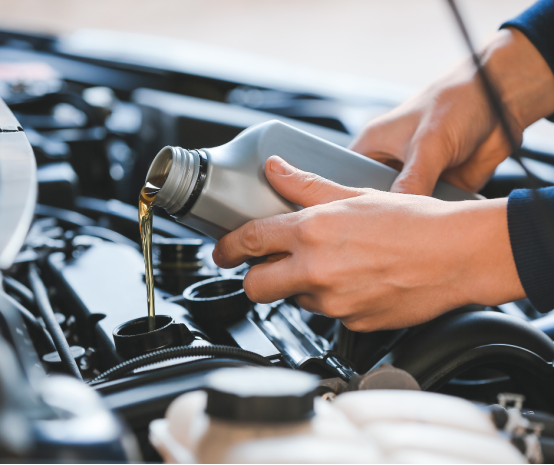Oil Change Services: The Costly Consequences of Neglect
Many drivers underestimate the impact that regular oil changes have on their vehicle’s performance and longevity. Failing to replace oil on schedule can cause severe engine problems and lead to expensive repairs. By understanding why oil changes matter and selecting the right service provider, you can safeguard your vehicle, extend its lifespan, and save significant money in the long run.
Many drivers underestimate the impact that regular oil changes have on their vehicle’s performance and longevity. Failing to replace oil on schedule can cause severe engine problems and lead to expensive repairs. By understanding why oil changes matter and selecting the right service provider, you can safeguard your vehicle, extend its lifespan, and save significant money in the long run.

Why Engine Oil is Essential
Think of engine oil as your car’s lifeline. It lubricates moving components, minimizes friction, regulates engine temperature, and helps remove dirt and debris from the system. Without clean oil, metal parts rub together, causing accelerated wear and potentially catastrophic damage.
As oil ages, it degrades and collects contaminants, reducing its protective qualities. Routine oil changes ensure your engine always has fresh lubrication, keeping it efficient and well-protected.
When Should You Change Your Oil?
Your oil change schedule depends on your car’s make, model, driving patterns, and the type of oil in use. The old rule of “every 3,000 miles” has shifted—modern engines and synthetic oils often last 5,000 to 10,000 miles between changes.
Always refer to your owner’s manual for precise recommendations, and adjust intervals if you drive in extreme temperatures, tow heavy loads, or frequently make short trips. Following the right timeline will prevent unnecessary wear and avoid steep repair costs.
Selecting a Quality Oil Change Service
Oil change providers vary greatly in service quality. Reputable shops do more than just swap out your oil—they also check vital systems such as brakes, tires, and fluid levels.
Choose facilities with certified mechanics and oils that meet your vehicle’s exact specifications. Many offer speedy service without compromising standards, while some provide premium options like synthetic upgrades or full maintenance packages.
Conventional vs. Synthetic Oil
Your choice of oil directly affects both cost and performance.
Conventional oil is more affordable and works well for older engines but breaks down faster.
Synthetic oil costs more upfront but offers superior protection, performs better in extreme temperatures, and allows longer intervals between changes—potentially saving money over time by improving engine health and fuel efficiency.
Warning Signs You Need an Oil Change
Ignoring oil maintenance can lead to noticeable symptoms. Listen for louder-than-normal engine noise, watch for reduced fuel economy, or take action if the dashboard oil light comes on.
Check your dipstick—if the oil appears dark and dirty—or notice unusual smells from the engine, it’s time for a change. Addressing these signals early prevents major mechanical issues.
Advantages of Staying on Schedule
Regular oil changes boost engine performance, improve fuel efficiency, reduce emissions, and prevent harmful sludge buildup. They also demonstrate responsible maintenance, helping preserve your vehicle’s resale value.
DIY or Professional Service?
While changing oil yourself can cut costs, professional services come with benefits—proper disposal of old oil, correct filter selection, and inspections that can uncover issues before they escalate. Many drivers find the added safety and convenience well worth the extra expense.
Final Takeaway: Small Service, Big Impact
Though it may seem like a simple task, an oil change is one of the most important steps in keeping your car in top condition. Staying consistent with this maintenance not only protects your engine but also ensures a smoother, safer driving experience.
Make oil changes a routine priority, and you’ll avoid unnecessary repairs while getting the best performance out of your vehicle for years to come.





